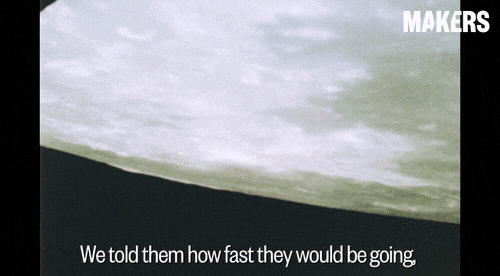The World’s Most Detailed Scan Of The Brain’s Internal Wiring Has Been Produced By Scientists At









The world’s most detailed scan of the brain’s internal wiring has been produced by scientists at Cardiff University.
Not only does the scan show the direction of the messaging, but also the density of the brain’s wiring. Conventional scans clearly show lesions - areas of damage - in the brain of MS patients.But this advanced scan, showing axonal density, can help explain how the lesions affect motor and cognitive pathways - which can trigger movement problems and extreme fatigue.
Prof Derek Jones, CUBRIC’s director, said it was like getting hold of the Hubble telescope when you’ve been using binoculars. “The promise for researchers is that we can start to look at structure and function together for the first time,” he said.
More Posts from Ship-happenss and Others



Rose-Colored Jupiter via NASA http://ift.tt/2FESHeN
You have to learn the rules of the game, and then you have to play better than everyone else.
Albert Einstein (via einsteintp)
ok but imagine peter not caring about his secret identity anymore and not making any effort to conceal it yet absolutely no one finds out he’s spiderman. peter wears the suit under his pants and a jacket but literally no one notices. he only gets a ‘cool shirt dude’ from a student he doesnt know. he does the iconic spiderman shooting-webs-from-his-hands pose in every single picture. no one says a word. he enters the classroom through the window. just as him, not spiderman. the classroom is on the second floor. no one cares.



“They were going to the moon. I computed the path that would get you there. You determined where you were on Earth when you started out, and where the moon would be at a given time. We told them how fast they would be going, and the moon will be there by the time you got there.”—Katherine Johnson
We’re highlighting a couple of important TechMAKERS this week for Women’s History Month. These women have made incredible strides in STEM, despite the challenges they faced entering professional and academic fields that are overwhelmingly male-dominated.
It was only recently, with the release of Hidden Figures, that Katherine Johnson received the public recognition she deserved. There was not much visibility granted to a woman of color working at NASA in the 1960s.
Katherine made innumerable contributions to our space program, but the most important was being part of the team that put an American on the moon. She calculated the trajectory analysis for the mission because the computer they used was known to be faulty. We repeat: Katherine Johnson’s calculations were more trusted than that of NASA’s computers.
To see our full video profile of Katherine Johnson, head on over to MAKERS.

The entire observable universe squeezed into one image by NASA.

F/A-18C Hornet assigned to the Wildcats
A New Day a New Adventure















Credit
If you get tired learn to rest, not to quit.
Banksy (via barbellsandfortitude)
-
 fallenfromgrace76 liked this · 10 months ago
fallenfromgrace76 liked this · 10 months ago -
 spungey reblogged this · 11 months ago
spungey reblogged this · 11 months ago -
 spungey liked this · 11 months ago
spungey liked this · 11 months ago -
 geofdarrow liked this · 1 year ago
geofdarrow liked this · 1 year ago -
 asikan liked this · 1 year ago
asikan liked this · 1 year ago -
 chaboneobaiarroyoallende liked this · 1 year ago
chaboneobaiarroyoallende liked this · 1 year ago -
 whitetrashwarhol liked this · 1 year ago
whitetrashwarhol liked this · 1 year ago -
 wildirishboy reblogged this · 1 year ago
wildirishboy reblogged this · 1 year ago -
 baygeethefirst reblogged this · 1 year ago
baygeethefirst reblogged this · 1 year ago -
 baygeethefirst liked this · 1 year ago
baygeethefirst liked this · 1 year ago -
 braelynnhutton liked this · 1 year ago
braelynnhutton liked this · 1 year ago -
 reprobate69me reblogged this · 2 years ago
reprobate69me reblogged this · 2 years ago -
 be-lieve-4-see reblogged this · 3 years ago
be-lieve-4-see reblogged this · 3 years ago -
 be-lieve-4-see liked this · 3 years ago
be-lieve-4-see liked this · 3 years ago -
 stayinsideme liked this · 3 years ago
stayinsideme liked this · 3 years ago -
 ash-03x liked this · 3 years ago
ash-03x liked this · 3 years ago -
 homerswinedarksea reblogged this · 3 years ago
homerswinedarksea reblogged this · 3 years ago -
 homerswinedarksea liked this · 3 years ago
homerswinedarksea liked this · 3 years ago